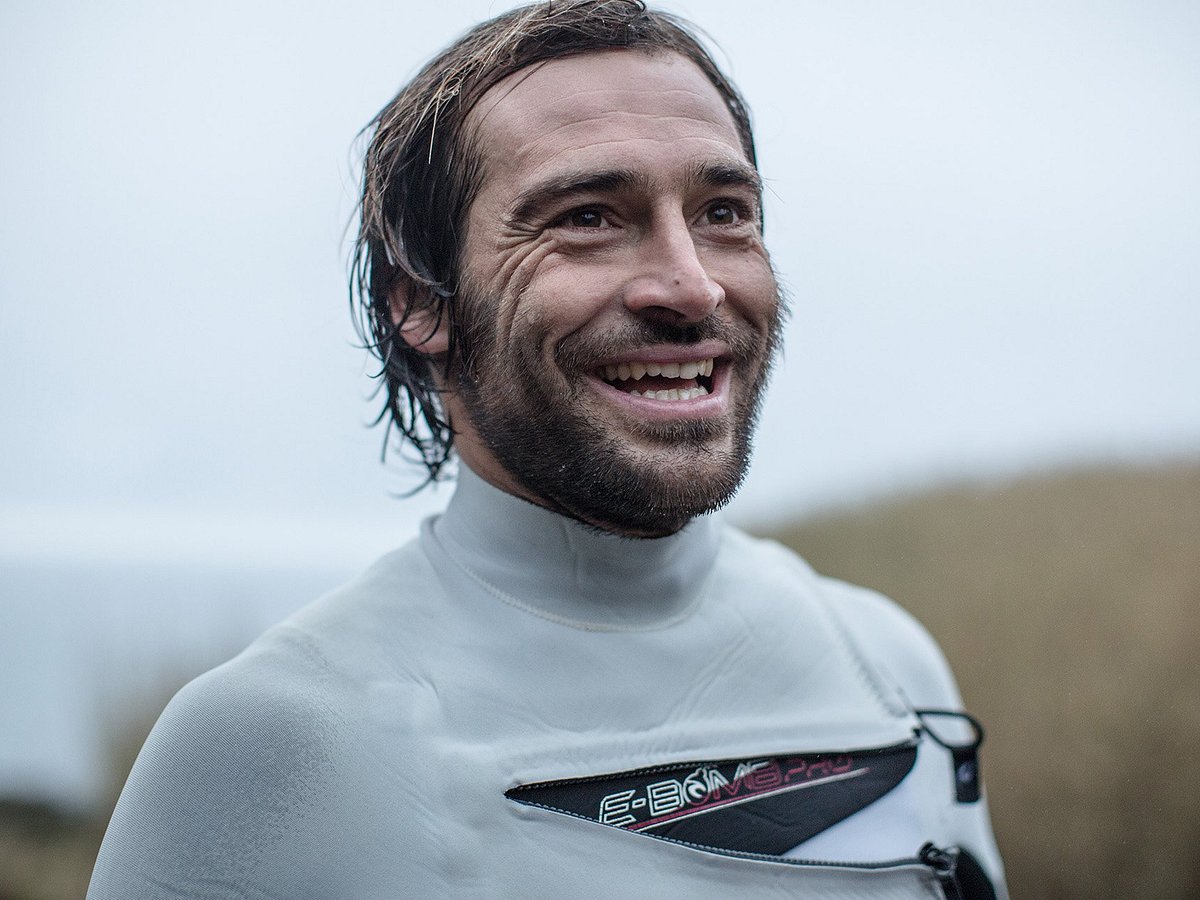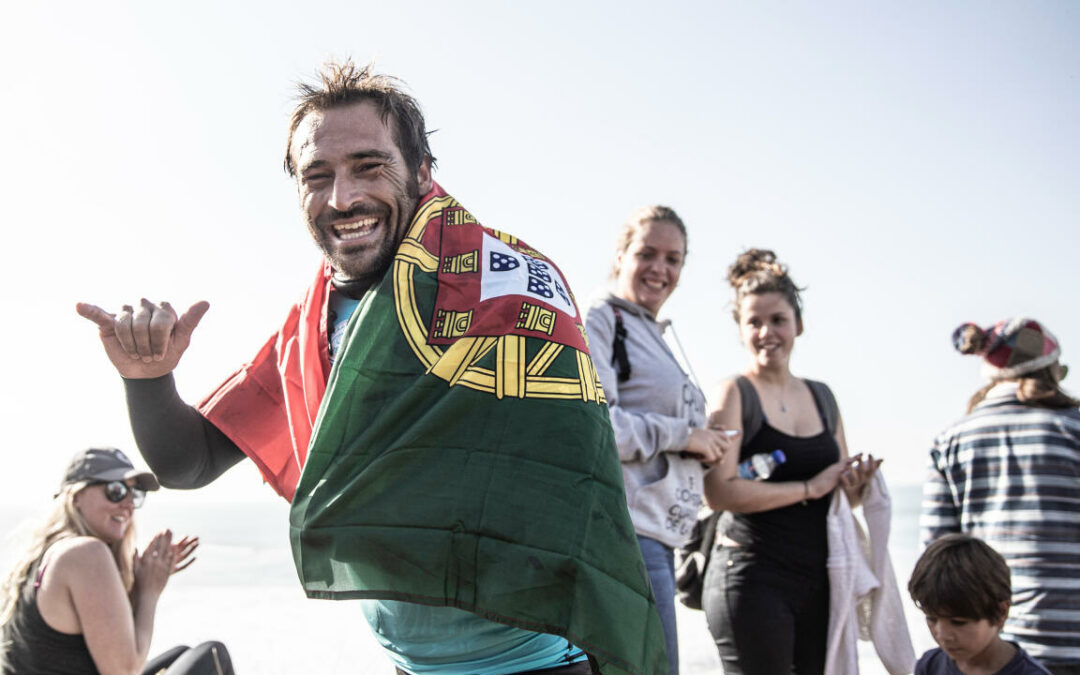“If we can develop a scalable regenerative seaweed farm model here, less than a mile from the giant waves of Nazaré, we can do it anywhere,” said Portuguese big wave surfer and activist João Macedo. “I truly believe by working with the local fishing community and stakeholders, we can work towards a regenerative and collaborative future.”

João Macedo is one of those inspiring humans that makes you believe the world can, and needs, to be a better place.
Better still, through direct action, he shows you how it can happen. His latest venture is called Hope Zones Foundation, whose primary goal is to restore biodiversity and fish stocks near the famous big wave spot in a way that can then be spun out around the world.
The Portuguese surfer is best known for his big-wave performances. He was the first Portuguese and European surfer to qualify for the WSL’s Big Wave Championship Tour and cracked the Top 5 in the 2012/2013 season. Born in America to Portuguese parents, he spent his 20s based in Santa Cruz, California, where he earned a rep as one of Mavericks’ standout performers.
Upon his return to Portugal, where he gained a second degree in Economics, the goofy footer turned his attention to Nazaré.
He has been a pivotal surfer there for the last decade, surfing in all of the WSL’s Nazaré. Paddle and Tow Challenges and has been nominated for multiple Big Wave XXL Awards.
Running alongside his professional surf career and academic pursuits has been a deep passion for environmental activism. He was a co-founder of the World Surfing Reserves movement created by the Save The Waves Coalition (STW), which helped designate Ericeira as the world’s second World Surfing Reserve. In 2021, he was part of the team that led STW’s Surf Protected Area Network program in the Azores.
Last year, he decided to focus on Nazaré. “In some ways, it was an easy choice. The international attention the waves receive is a great platform,” the 47-year-old said. “It’s also an ideal testing ground to demonstrate that our seaweed farms can withstand even the toughest environments.”
In other ways, it came with some enormous challenges apart from the obvious one of growing kelp in winter under the massive swells that roll out of the Atlantic Ocean and funnel down the 16,000-feet-deep Nazaré Canyon. There was a natural resistance from the local fishing community, which has been the town’s commercial heartbeat for centuries. With the kelp farm located just outside the harbor, the fishermen were concerned that the creation of a marine protected area would hurt their livelihoods.
“We had to involve and inspire them; otherwise, these projects simply won’t work,” Macedo said. “But that’s why seaweed farming was a good choice. It’s scalable, and the increased biodiversity can be in harmony with the local fishing community. I’ve learned that you have to provide a positive solution that everyone can get behind.”
We’ve covered how Waterways customers help fund SeaTrees projects with the planting of coral reefs in Bali and mangrove trees in Baja. The Hope Zones Foundations projects are based on a similar principle, providing a scalable, commercial blueprint that can be replicated elsewhere in the world.
“We want to safeguard the beauty and vitality of the ocean for future generations while helping local community livelihoods,” Macedo said. “They can go hand-in-hand.”
One goal is to develop regenerative seaweed farms within the offshore wind park zones that are being developed along the Atlantic coast. This will open the door to new revenue streams, such as blue carbon credits, as seaweed gains recognition from CO2 off-setting certification bodies.
The team’s team of scientists and activists have been using advanced buoy monitoring with sensors to track ocean currents, water temperature changes, and their effects on seaweed growth, biodiversity, and fish populations.This data will demonstrate the positive impact of seaweed farms on marine ecosystems, as well as the carbon-capturing potential of kelp and other types of seaweed. Documentaries, storytelling, and education are other important pillars of the project.
“I hope my experience and love for surfing will inspire others to get involved,” João said. “The waves Nazare have provided so much to me and generated so much passion all over the world. Hope Zones Foundation shows that there are real, meaningful ways to help protect the ocean. We also just need to lean in.”
